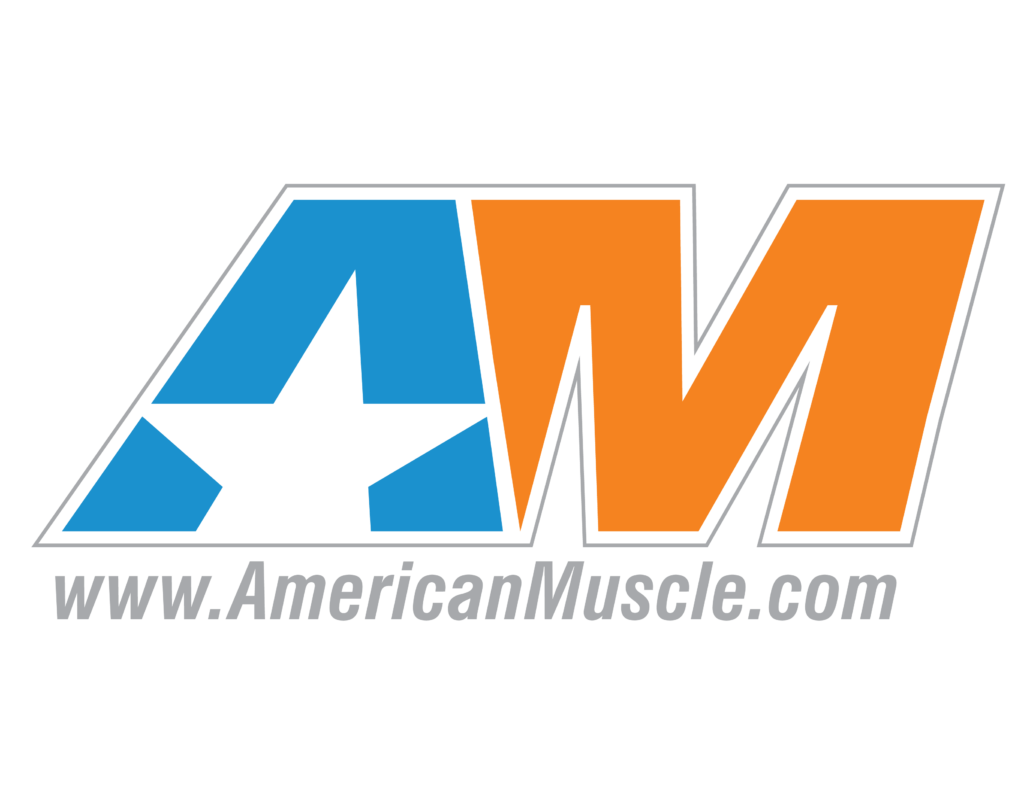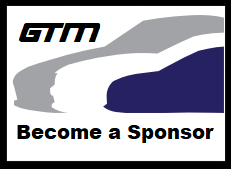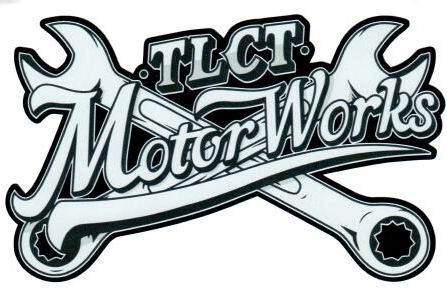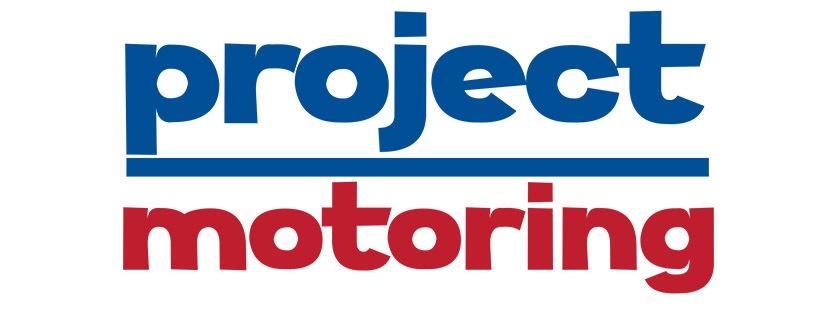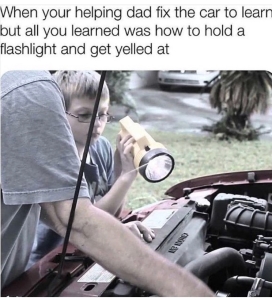
Ain’t that the truth! – I have to admit, predicated by the same simple request “come here, I need you to hold the light”– I would spend countless hours in the garage with my Dad. Being Italians, and immigrants, we had that classic “roll’em up” tenacity that meant we did “all our own work.” But it was also part of the car culture at that time. My dad’s side of the family has always been into cars, and my father was no exception. #swapallthethings
There have been several times as I look back over my childhood that I recall vivid experiences in the garage that were actually critical learning moments. If you’d asked me 10 years ago, I probably would have said “My father wasn’t the most learned man, he was a smart guy – spent 30 years as a main frame programmer – but he wasn’t into what he would have probably called ‘the softer sciences’ like Psychology, etc. He was more of an engineer. And a bit of a McGuyver.” – What a shock when I was digging through some old boxes buried in my office and I re-discovered 4 psychology textbooks that my Dad had used in school. I realize now, my Dad was clever, and he understood how people learned and approached my sister and I differently when he thought something was important for us to absorb. This ability made him a very effective AutoCross and DE instructor.
Flipping through the pages of these dusty old books, I noticed the sections on “different styles in which everyone learns” (there are 7, actually).
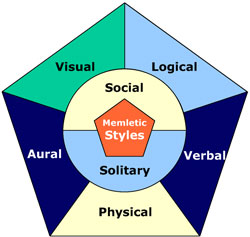
- Visual (spatial): You prefer using pictures, images, and spatial understanding.
- Aural (auditory-musical): You prefer using sound and music.
- Verbal (linguistic): You prefer using words, both in speech and writing.
- Physical (kinesthetic): You prefer using your body, hands and sense of touch.
- Logical (mathematical): You prefer using logic, reasoning and systems.
- Social (interpersonal): You prefer to learn in groups or with other people.
- Solitary (intrapersonal): You prefer to work alone and use self-study.
(Source: Learning-Styles-Online)
So where am I going with this?… “Come here and hold the light” turned out to secretly be “Son, its time I show you how this works.” – and I tell you what, without knowing it, I learned to do a lot of mechanical things just by watching. Ever wonder how some folks know the exact the size of the socket they need for a bolt they’ve encountered for the first time? Visual Learners – CHECK!
As I got older, I would be handed tools and told “go do X” and I never really gave it much thought and just started working. I would hit road blocks from time-to-time and ask for help, which always yielded the same response: “if you can figure out how to take it apart without breaking it, you can fix it.” — what the hell does that mean, Dad? – says my 12 year old self. What I realize now, is that he was switching me from being a VISUAL LEARNER to a LOGICAL LEARNER. Lots of complex engineering projects, especially cars, are a series of operations with very specific combinations of components. Learn the order in which items are assembled, and you can fix/build anything.
Ok, now you’re saying… yep, gonna stop reading #TL:DR, this is a wonderful homage and trip down memory lane… but there *is* a point here. All of this indirectly applies to coaching. Yep!, here he goes again. #brokenrecord #deadhorse – Rather than start an entire lecture, I will summarize my key takeaways from this simple and repetitive chore of “holding the light”:
- Learning patience, which I remind my daughters is “practicing waiting” – a skill that is imperative to working with students, especially novices.
- Paying attention to all the steps in the process; become procedural in how you teach performance driving; build your students skills in layers, use the classroom materials as your shop manual.
- Observe how people learn: if you ask them, they probably can’t tell you – therefore try different techniques and recognize the types from the list above and adapt.
- Once you think your student has grasped the concepts, give them some freedom to make mistakes and grow, but continue to provide guidance. If you keep telling them what to do, they will never feel comfortable trying new lines, or techniques, and will be lost when they go to an unfamiliar track.
I won’t paint all these childhood memories in rose, but I will say there is also a key parenting ideology I also took away from all this. Whether my Dad intended to or not, he taught me something important“make sure you make your kids a part of your life, and not the other way around” – this is the only piece of advice I ever give new parents if asked. Framed in the context of Motorsports, keeping our kids involved in this hobby from an early age is one of the key ways we keep this sport we all adore so much, alive.









